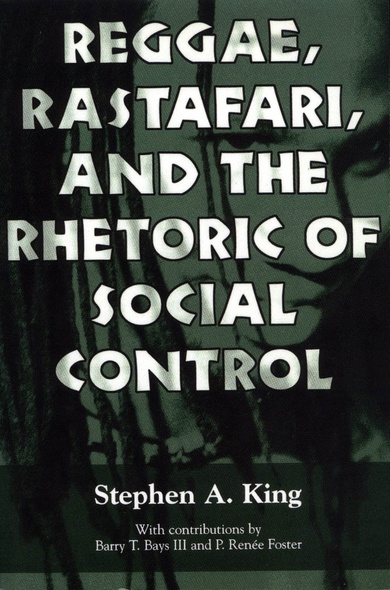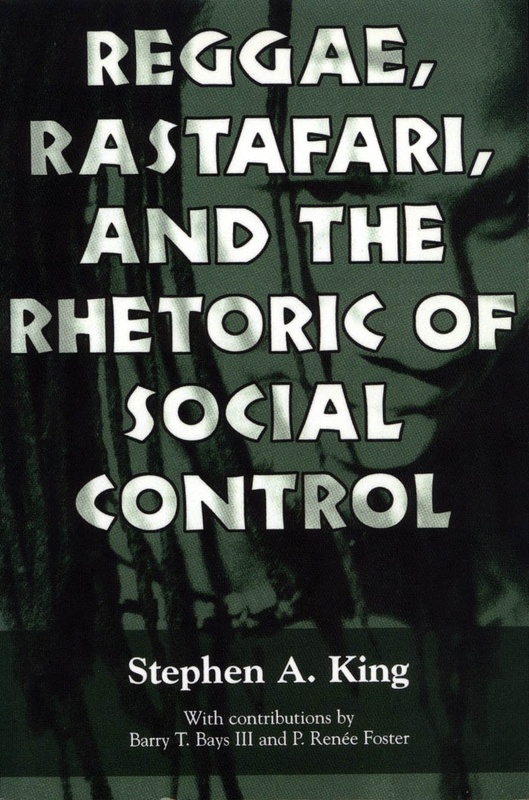Our shopping cart is currently down. To place an order, please contact our distributor, UTP Distribution, directly at utpbooks@utpress.utoronto.ca.
Reggae, Rastafari, and the Rhetoric of Social Control
Who changed Bob Marley’s famous peace-and-love anthem into “Come to Jamaica and feel all right?”
When did the Rastafarian fighting white colonial power become the smiling Rastaman spreading beach towels for American tourists?
Drawing on research in social movement theory and protest music, Reggae, Rastafari, and the Rhetoric of Social Control traces the history and rise of reggae and the story of how an island nation commandeered the music to fashion an image and entice tourists.
Visitors to Jamaica are often unaware that reggae was a revolutionary music rooted in the suffering of Jamaica’s poor. Rastafarians were once a target of police harassment and public condemnation. Now the music is a marketing tool, and the Rastafarians are no longer a “violent counterculture” but an important symbol of Jamaica’s new cultural heritage.
This book attempts to explain how the Jamaican establishment’s strategies of social control influenced the evolutionary direction of both the music and the Rastafarian movement.
From 1959 to 1971, Jamaica’s popular music became identified with the Rastafarians, a social movement that gave voice to the country’s poor black communities. In response to this challenge, the Jamaican government banned politically controversial reggae songs from the airwaves and jailed or deported Rastafarian leaders.
Yet when reggae became internationally popular in the 1970s, divisions among Rastafarians grew wider, spawning a number of pseudo-Rastafarians who embraced only the external symbolism of this worldwide religion. Exploiting this opportunity, Jamaica’s new Prime Minister, Michael Manley, brought Rastafarian political imagery and themes into the mainstream. Eventually, reggae and Rastafari evolved into Jamaica’s chief cultural commodities and tourist attractions.
Stephen King’s work deftly brings together a variety of source material including scholarly articles, short-lived and obscure Black Power and Rasta magazines, articles in mainstream newspapers and the lyrics of a wealth of reggae songs. The net result is a carefully reasoned, wonderfully illustrated, and engaging analysis of the success and failures in the ongoing dialectic between middle-class Jamaicans and the Rastafarians. Highly Recommended.
Reggae, Rastafari, and the Rhetoric of Social Control is an extremely well-written, well-researched study of a significant and unique social movement that used music as a recruitment tool and as a means of solidifying membership. This book provides great insights into social movements, particularly those who use music as their primary tool of persuasion, and how establishments can effectively challenge them.
Stephen King’s excellent examination and analysis of Rastafarian protest makes an important contribution to the study of social movements, perceptively illuminating the manner in which music operated rhetorically to combat the neocolonial mechanisms of social control. This is a fascinating book that cuts across several disciplines. Those interested in rhetoric, cultural studies, and ethnomusicology, for example, will learn much by reading it.
Stephen A. King is chairperson and professor of communication at St. Edward’s University in Austin, Texas. He has written extensively about rhetoric, public memory, and cultural tourism and is author of I’m Feeling the Blues Right Now: Blues Tourism and the Mississippi Delta and coauthor (with Roger Davis Gatchet) of Terror and Truth: Civil Rights Tourism and the Mississippi Movement, both published by University Press of Mississippi.





